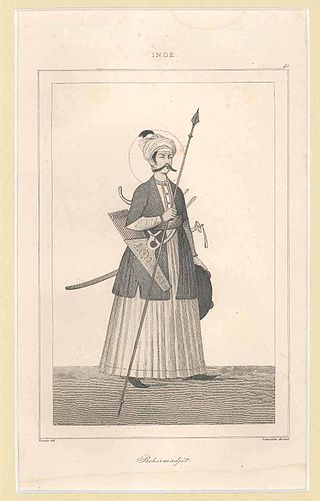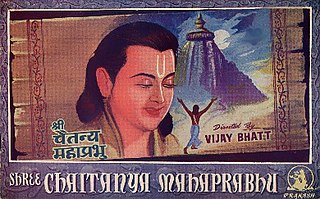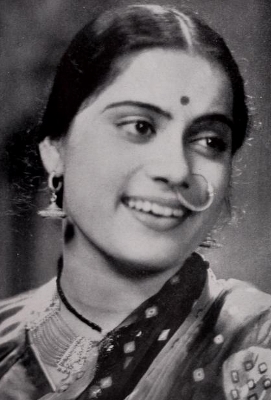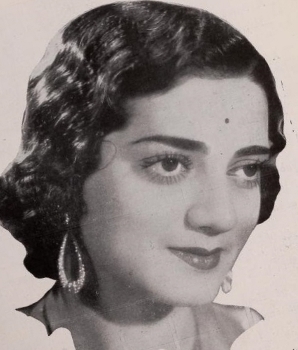Events in the year 1972 in the Republic of India.

Prithviraj Kapoor was an Indian actor who is also considered to be one of the founding figures of Hindi cinema. He was associated with IPTA as one of its founding members and established the Prithvi Theatres in 1944 as a travelling theatre company based in Bombay.

The Kapoor family is a prominent Indian show business family with at least 4 generations of the family over 96 years being active in the Hindi film industry. Numerous members of the family, both (biological) and those who have married into the family, have had prolific careers as actors, film directors and producers. "The Pioneer" founder of the dynasty was "The Patriarch", Prithviraj Kapoor, who was the first member of family to begin acting in movies with his 1929 debut film Be Dhari Talwar. He was a pioneer of Indian theatre and the founding member of Indian People's Theatre Association (IPTA). His son Raj Kapoor was the most influential actor and director in Hindi cinema. The genesis generation or the earliest linear generation of the Kapoor family tree to ever act in the films was Prithviraj Kapoor's father, Basheshwarnath Kapoor, who debuted as actor in 1951 film Awaara, which was produced, directed and starred in lead role by his grandson Raj Kapoor.

Vikramaditya was a legendary king as mentioned in ancient Indian literature, featuring in traditional stories including those in Vetala Panchavimshati and Singhasan Battisi. Many describe him as ruler with his capital at Ujjain. "Vikramaditya" was also a common title adopted by several monarchs in ancient and medieval India, and the Vikramaditya legends may be embellished accounts of different kings. According to popular tradition, Vikramaditya began the Vikrama Samvat era in 57 BCE after defeating the Shakas, and those who believe that he is based on a historical figure place him around the first century BCE. However, this era is identified as "Vikrama Samvat" after the ninth century CE.
Shobhana Samarth was an Indian director, actress and producer, who began her career in the early days of talkie movies in the Hindi film industry and continued in lead roles into the 1950s.

Baiju Bawra is a 1952 Hindi musical romantic drama film directed by Vijay Bhatt. Produced by Prakash Pictures, with story by Ramchandra Thakur and dialogues by Zia Sarhadi, Baiju Bawra was a musical "megahit" which had a mighty 100-week run in the theatres. Bhatt's decision to make a film based on classical music was met with scepticism by the Indian film industry due to its "lack of mass appeal", but the film and music turned out be an "overwhelming success".

Panna Dhai also known as Panna Dai was a 16th-century nursemaid to Udai Singh II, the fourth son of Rana Sanga.

Ratna Pathak Shah is an Indian actress and director known for her work in Hindi theatre, television, and films. Her extensive work in theatre includes a series of plays in both English and Hindi. She rose to prominence when she appeared in the hit TV serial Idhar Udhar in the 1980s.
Maya Macchindra, also titled alternatively as Alakh Niranjan, is the title of various films produced in different languages in India. The story is based on the life of Matsyendranath or Machindranath one of the eighty-four Mahasiddhas, tantric yogic master and the founder of nath lineage, and his famous disciple, baba Gorakhnath.

Pagal is a 1940 Indian Hindi-language film. It was the fourth highest grossing Indian film of 1940. The psycho-social melodrama was directed by A. R. Kardar for Ranjit Movietone. Kardar also wrote the dialogues and story for the film. Khemchand Prakash composed the music with lyrics written by D. N. Madhok. The film's protagonist was Prithviraj Kapoor playing a doctor with psychological problems, working in a "lunatic asylum". The rest of the cast included Trilok Kapoor, Madhuri, Sitara Devi, Noor Mohammed Charlie, Khatoon, and Sunalini Devi.

Phantom Studios is an Indian film production and distribution company established by Madhu Mantena, Anurag Kashyap, Vikas Bahl, and Vikramaditya Motwane. It was founded in 2011 by all four of them, and was cited as the "directors' company". In March 2015, Reliance Entertainment picked up 50% stake in the company.

Vikas Bahl is an Indian filmmaker, best known for directing Chillar Party (2011), Queen (2013), Super 30 (2019), and Shaitaan (2024).

Vidyapati is a 1937 Bengali biopic film directed by Debaki Bose for New Theatres. It starred Pahari Sanyal as Vidyapati. His costars in the film were Kanan Devi, Prithviraj Kapoor, Chhaya Devi, Leela Desai, K. C. Dey and Kidar Sharma. The music was by R. C. Boral and lyrics by Kidar Sharma. Debaki Bose and Qazi Nazrul Islam wrote the story, screenplay and dialogues. The story is about the Maithili poet and Vaishnava saint Vidyapati. The songs of the film became popular and the lyrics though encapsulating Vidyapati's poetry were considered bold for its time. This however ensured the film garnered crowds at the theatres making it a big success of 1937.

Shri Chaitanya Mahaprabhu is a 1953 Hindi devotional biopic film produced and directed by Vijay Bhatt. The film's music was composed by R. C. Boral, with lyrics by Bharat Vyas. The director of photography was V. N. Reddy. Bharat Bhushan won the Filmfare Award for Best Actor for his portrayal of Chaitanya Mahaprabhu. Asha Parekh, having started her career as a child artist in 1952, and who went on to become a famous actress, was cast in a small role in this film. The starcast included Bharat Bhushan, Durga Khote, Ameeta, Asha Parekh, Ram Mohan, Madan Puri, Kanhaiyalal and B.M. Vyas.

Angulimaal is a 1960 Hindi mythology drama film directed by Vijay Bhatt. The film was a Thai Information Service Co. Ltd. Presentation.
Rambaan is a 1948 Indian Hindi-language mythological drama film directed and produced by Vijay Bhatt and written by Mohanlal Dave, with dialogue by Pandit Girish. The film starred Prem Adib as Rama and Shobhana Samarth as Sita, with Chandra Mohan, Umakant, Amirbai Karnataki and Raj Adib in other principal characters. The film's music was composed by Shankar Rao Vyas.

Ramayan is a 1954 Hindi religious film based on Valmiki's Ramayana, produced and directed by Vijay Bhatt for Prakash Pictures. The music directors were Shankar Rao Vyas and Hariprasanna Das and the lyrics were written by Ramesh Gupta, Pandit Indra, Neelkanth Tiwari, Baalam Pardesi. The film starred Prem Adib and Shobhana Samarth once again as Rama and Sita. The two actors had earlier acted in a trilogy of Bhatt's films based on the Ramayana, Bharat Milap (1942), Ram Rajya (1943) and Rambaan (1946). All three had been extremely successful, with the audience accepting them in the traditional roles. The other costars included Shahu Modak, Durga Khote, and Umakant.

Shanta Apte (1916–1964) was an Indian actress-singer who worked in Marathi and Hindi cinema. Renowned for her roles in films like Duniya Na Mane/Kunku (1937) and Amar Jyoti (1936) under the Prabhat Films banner, she was active in Indian cinema from 1932 to 1958. Apte's impact on Marathi cinema "paralleled" that of Kanan Devi in Bengali cinema. Along with Kanan Devi, Apte is cited as one of the "great singing stars" from before the playback singing era. Apte began her career in films playing the role of a young Radha in the Marathi film Shyamsunder (1932). She joined Prabhat Films acting in her first Hindi language film Amrit Manthan in (1934).

Sabita Devi (1914–1965) was a Hindi film actress in Indian cinema. She is stated to be one of the "prominent" leading ladies of the "pioneering era" of Indian cinema along with Mehtab, Bibbo, Durga Khote, Gohar, Devika Rani and Seeta Devi. A Jewish by birth, she changed her name to find acceptability in Hindi cinema like the other Anglo-Indian and Jewish actresses of her time, Sulochana, Seeta Devi, Madhuri, and Manorama. After initially working with British Dominion Films Ltd., Calcutta, she shifted to Bombay and performed mainly in films produced by Sagar Movietone with her co-star in most films being Motilal. Some of the popular films with Motilal were Dr. Madhurika (1935) and Kulvadhu (1937) directed by Sarvottam Badami. Their first film together was Shaher Ka Jadoo (1934), which was also Motilal's debut film, and then Lagna Bandhan (1936) both directed by Kaliprasad Ghosh. She acted in Silver King (1935) with Motilal. It was an action film directed by C. M. Luhar, which became a "huge success".















